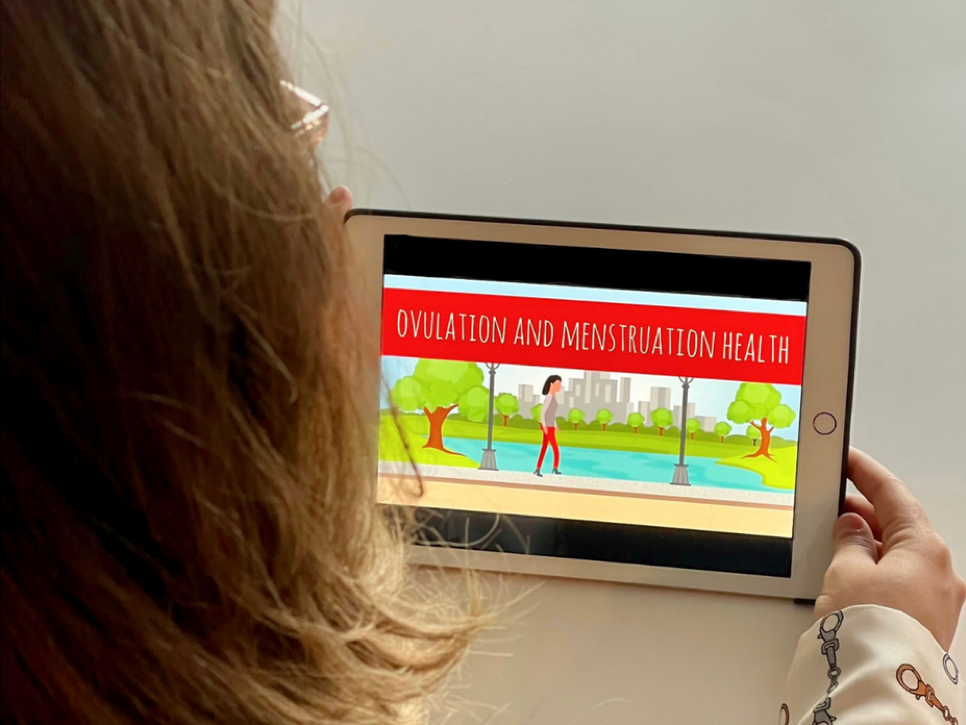
Enrolling Studies
Apple Women’s Health Study
The study aims to understand how certain demographic and lifestyle factors could have an impact on menstrual cycles and gynecologic conditions including infertility, menopause, and polycystic ovary syndrome (PCOS). Visit the study website.
The Beauty Edit Study ( TBES)
This study is digital storytelling website aiming to characterize the understanding of the effects of endocrine disrupting chemicals (EDC)s on the reproductive and endocrine system. Additionally, TBES aims to assess the use of personal care products containing EDCs as well as characterize knowledge and attitudes about personal care product use, EDCs, and EDCs’ impact on health. For more information on the study please visit this link.
MAGNOLIA
This study aims to understand the impact of endocrine-disrupting chemicals (EDCs) on menstrual cycle characteristics, which are important indicators of reproductive health. The MAGNOLIA study will specifically focus on individuals who frequently use nail products to explore these questions further. For more information on the study please visit this link.
PEONY
This study is a personalized smartphone-based assay for at-home ovulation prediction. The study’s aim is to develop an ovulation kit empowered by AI that uses salivary ferning for ovulation detection and tracking even in women with polycystic ovarian syndrome (PCOS) who may not have accurate results through the standard urinary detection methods.

Data Anaylsis
Ovulation and Menstruation Health Study
The study is an online survey platform for understanding factors that promote ovulation and menstruation health across the lifespan and factors that increase the risk of ovulation disorders, such as polycystic ovary syndrome. Visit the study website.
ART Provider and Patient Resource to Improve Communication about Outcomes and Treatment (APRICOT)
The study aims to design and evaluate a health information technology application, to help fertility clinics collect pregnancy outcome information more efficiently from previous assisted reproductive technology (ART) patients and their healthcare providers.

Recently Completed Studies
Endocrine Disruptors and Hair Salons Research
The study observed the levels of endocrine-disrupting chemicals (EDCs) in hair salon workers and clients. For more information head to the study’s website.
COVID-19 and Menstrual Cycles Study
The study observed how factors related to the COVID-19 pandemic impacted menstrual cycles. For more information head to the study’s website.

Newly Funded
R01: Climate factors, racial/ethnic disparities, and menstrual cycle health
The study’s goal is to fill a major gap in our understanding of the effect of air pollution and climate-related exposures on menstrual health and disease. The findings may help inform clinical counseling on health promotion and risk reduction across the lifespan to support menstrual health.R01 – Aims & References
Digital storytelling to reduce the personal care product associated EDCs exposure and hormonally mediated disease risks for Black or African American Women
The goal of this study is to innovate a digital storytelling educational tool as an intervention to detail personal care product-based exposures and disparities in exposure between and among populations focusing on Black and African American women. This was awarded in 2023 by The Department of Health and Human Services, the Office of the Assistant Secretary for Health (OASH), Office on Women’s Health (OWH), Endocrine-Disrupting Chemicals Innovator Award Competition.